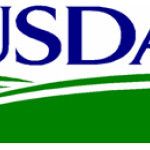- Industrie: Government
- Number of terms: 41534
- Number of blossaries: 0
- Company Profile:
The predominant variety of cotton grown in the United States; upland cotton has long been eligible for government price support and is now eligible for production flexibility contract payments. A fiber plant developed in the United States from stock native to Mexico and Central America. Includes all cotton grown in the continental Unites States expect Sea Island and American Pima cotton. Staple length of upland cotton ranges from 3/4 inch to 1 1/4 inches.
Industry:Agriculture
Under the Federal Insecticide, Fungicide, and Rodenticide Act (FIFRA), "unreasonable adverse effects on the environment means (1) any unreasonable risk to man or the environment, taking into account the economic, social, and environmental costs and benefits of any pesticide, or (2) a human dietary risk from residues that result from a use of a pesticide in or on any food..." in excess of that allowed by a tolerance.
Industry:Agriculture
A formula used to estimate erosion rates by considering climate, soils, and topographic conditions at a site, as well as any degree to which the use and management of the soil reduce erosion. It is being replaced by a revised universal soil loss equation.
Industry:Agriculture
The Office of the U.S. Trade Representative, originally Office of the Special Trade Representative (STR), is responsible for developing and coordinating international trade, commodity, and direct investment policy, and leading or directing negotiations with other countries. It is headed by the United States Trade Representative (also USTR), a Cabinet-level official with the rank of Ambassador. The agency provides trade policy leadership and negotiating expertise on all matters within the World Trade Organization (WTO); trade, commodity, and direct investment matters dealt with by international institutions such as the Organization for Economic Cooperation and Development (OECD) and the United Nations Conference on Trade and Development (UNCTAD); export expansion policy; industrial and services trade policy; international commodity agreements and policy; bilateral and multilateral trade and investment issues; trade-related intellectual property protection issues; and import policy. The agency has administrative responsibility for the Generalized System of Preferences (GSP); Section 301 complaints against foreign unfair trade practices; unlawful and unfair import competition under Section 337; and import relief cases under Section 201. Five Members from each of the House and Senate are formally appointed under statute as official Congressional advisors on trade policy, and additional Members may be appointed as advisors on particular issues or negotiations.
Industry:Agriculture
P.L. 64-190 (August 11, 1916), as amended, authorizes the Grain Inspection, Packers and Stockyards Administration to establish official marketing standards (not health and safety standards) for grains and oilseeds, and requires that exported grains and oilseeds be officially weighed and inspected. Domestically marketed grain and oilseeds may be, but are not required to be, officially inspected. Export inspections are carried out by federal inspectors or by federally supervised state inspection agencies, called delegated official inspection agencies. Official inspections of domestically traded grain is done by federally supervised state agencies and private companies, called designated official inspection agencies. Typically, marketing standards describe the physical characteristics (such as weight, damaged kernels, foreign material, shrunken and broken kernels, and defects) of the commodity and serve as contract language to facilitate marketing. Official weighing and inspection is paid for on a fee-for-service basis, not with federal funds. Major changes to the law were adopted in the USGSA Amendments of 1968, the USGSA of 1976 (P.L. 94-582), and the Grain Quality Improvement Act of 1986 (P.L. 99-641).
Industry:Agriculture
The consolidation and codification of all the general and permanent laws of the United States. The U.S. Code is divided into 50 titles that represent broad subject areas. Title 7 is Agriculture. Each title is divided into chapters followed by subdivisions into parts covering specific areas. For example, 7 USC Chapter 45 Subchapter III deals with the Conservation Reserve Program. Regulations issued to administer the laws are first published in the Federal Register and then in the Code of Federal Regulations.
Industry:Agriculture
P.L. 100-449 (September 28, 1988) implemented the bilateral trade agreement between the United States and Canada, including agricultural trade. The agreement would phase out tariffs between the two countries over 10 years and revise other trade rules.
Industry:Agriculture
A UN agency that focuses attention on international economic relations and on measures that might be taken by developed countries to accelerate economic development in developing countries.
Industry:Agriculture
Generally refers to a string of freight cars that all carry the same commodity, frequently over long distances. Unit trains are widely used to haul such raw commodities as coal and grains, because they are less costly for railroads than mixed freight shipments. Unit trains have become a point of contention between agricultural shippers and the railroads, mainly because the shippers are increasingly being asked to fill longer unit trains (for example, 104 hoppers), which many local elevators are not equipped to handle.
Industry:Agriculture
The average cost to produce a single item. The total cost divided by the number of items produced.
Industry:Agriculture
